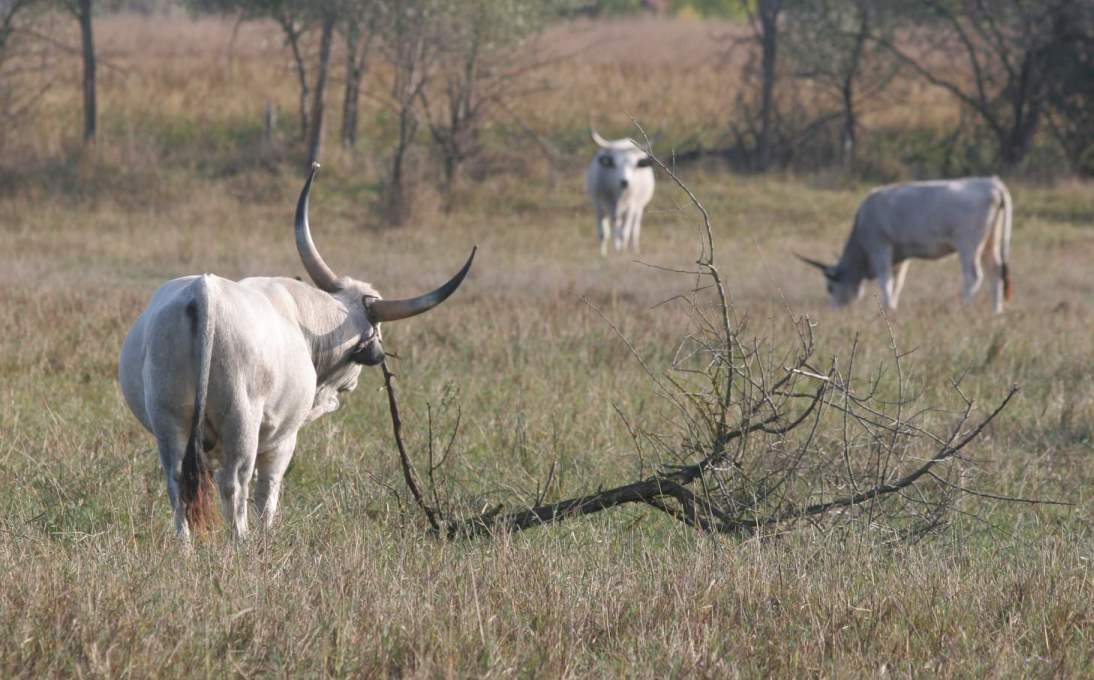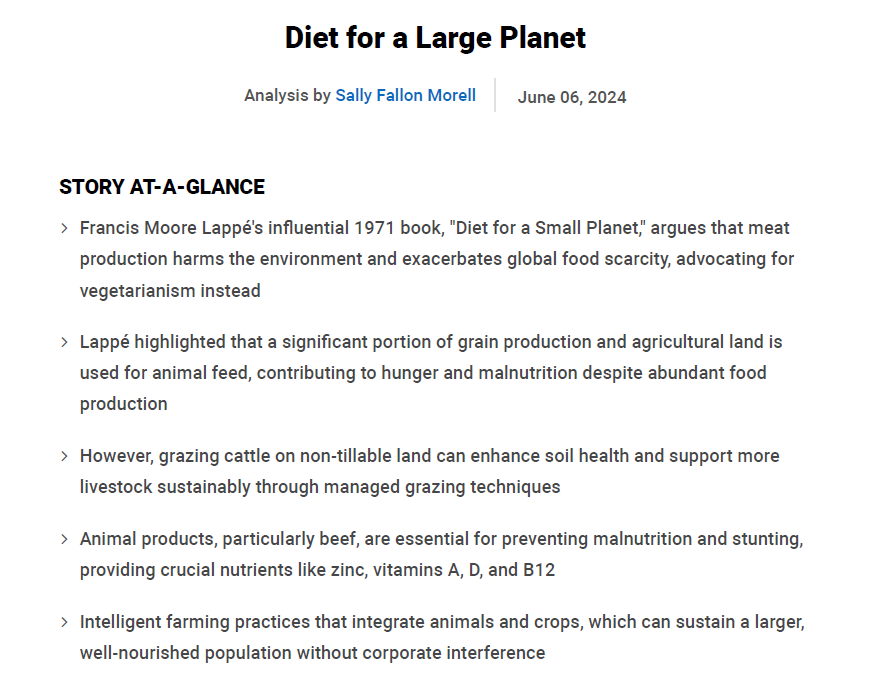I don’t want to add the discussion (I don’t understand why anywhere would picture that as truth, by the way. I don’t trust about anything food industry does and not all countries have the land to do it anyway… but I don’t have data about that), I have brought a photo.
If I picture grazing cattle, that’s different, that’s various colored (mostly white and red, I mean on the same animal, it’s our most common breed) cattle on an emerald hill!  As I saw that several times. I do see the same breed on less hilly areas. But now I picture this afterwards:
As I saw that several times. I do see the same breed on less hilly areas. But now I picture this afterwards:
Hungarian Gray, our ancient breed, we had millions in the mid-1800s according to a table I saw there and then it went down to almost zero. Modern times care about animal species and traditional breeds more so the number raised but the newer breed kept its place. The beef farm I occasionally get meat from keep and sell some. Farms apparently like variety, the nearby pig farm has all kinds of pigs too, Mangalica (curly fur, comes in red color that I like and extra fatty. extra pricy too, usually), white, black and white, Duroc (my SO calls them “roasted pigs” as they have a wonderful reddish brown fur)… Some domesticated piglets are striped, did you know that? I didn’t until a few years ago.
And the cattle grazing is very much needed for proper variety in plants and that affects the bird populations… The area with the Hungarian Grays are famous about its birds and indeed, it’s amazing!
I can picture pretty things about chicken too but bad ones as well. Even if they are home-raised. I saw chickens kept in a tiny dark shed. Even the luckier hens got only a few wilting weeds on the bleak, almost barren yard. But at least there was light. Wow.
Chickens are where it matters A LOT how they were kept. Cheap chicken is pretty much tasteless. Cheap pork is super tasty. Beef has the same price in the supermarket and from the farm, I only ate the cheapest cuts (still luxury to me) and the right cuts were very tasty. Beef shank is great, I understand why I have read it’s perfect for stews  It makes wonderful Goulash. There is a bit work with it and some cat food is produced in the process, not 100% edible for us but it’s the cheapest and very good. But deer is cheaper (when I buy it at the right place or when it’s on sale but I almost always buy meat on sale, there are sales all the time) and 100% edible so I choose that if possible. For some reason, leanness doesn’t bother me if it’s ruminant meat.
It makes wonderful Goulash. There is a bit work with it and some cat food is produced in the process, not 100% edible for us but it’s the cheapest and very good. But deer is cheaper (when I buy it at the right place or when it’s on sale but I almost always buy meat on sale, there are sales all the time) and 100% edible so I choose that if possible. For some reason, leanness doesn’t bother me if it’s ruminant meat.
But good chicken is quite tasty (still not substantial for me) while cheap chicken is meh. But the former costs like 4 times as much money, it can be more expensive than beef at that point (cheapest beef but still! beef is worth WAY more than some chicken if you ask me).



 ) as that is cheaper from the farm…
) as that is cheaper from the farm…